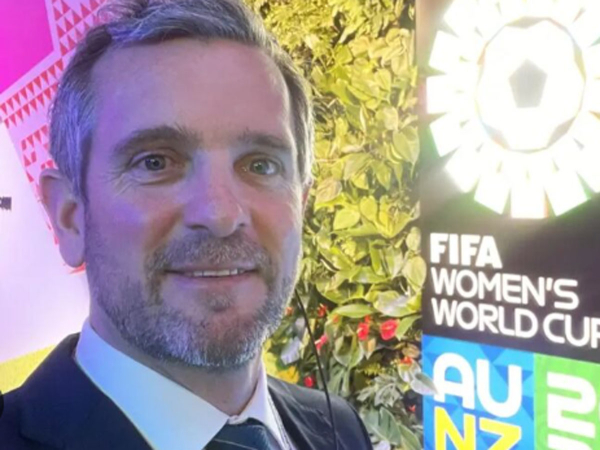[ad_1]
The sun may be setting on Kaikōura’s sole beachfront camping ground.
Permanent residents are nervous they’ll be left homeless, long-time holidaymakers worry it will be the last of family vacations after “generations” of trips and the community fears it will be a death knell for the local economy.
The owner of the site, Ngāi Tahu, gave notice more than 18 months ago to operators of the Peketa Beach Holiday Park, saying their lease for the land wouldn’t be renewed.
The iwi said there are health and environmental risks from outdated wastewater infrastructure and has yet to reveal its plans for the future of historically significant pā.
The small-town rumour mill is at an all-time high, some firmly believing Peketa’s days are numbered. Others live in the hope that operations will continue in some form.
Rex and Ruth McCaa took over the campground in 2018 but they’ve resigned themselves to the fact their time at Peketa is coming to an end with their lease in July. The McCaas say they’ve had zero indication of what the future lay of the land looks like once they are out.
Ruth McCaa says they consistently have families trying to book ahead for next summer, who they are having to turn down.
“It’s very sad, there’s generations of families that have been coming here for a very long time… they ask us, where are we going to go?”
Among those are Marie and Alan Stammers.
The couple have been coming to the area for decades – and firmly believe Peketa’s doors closing would be a severe blow to Kaikōura.
Alan Stammers says it would force families out of the area for good – as it’s one of the town’s few affordable accommodation outlets.
“People have got families and young kids – and want to enjoy what we’ve enjoyed over the last 40 years.”
Stammers recalls when he and Marie first came to the town, there was just one shop open in the main street – and warns it will return to that state if the campground closes, particularly as several other sites – like Goose Bay – have closed in recent years.
Two other long-time Pekata loyals are Maureen Newell and Richard Moore.
The pair have held a permanent site at the Holiday Park for more than a decade and come here from their Christchurch home at every opportunity.
They have been left “devastated” by news of a potential closure.
Much like the Stammers, Moore says he isn’t concerned just for he and Maureen’s sake, but the future of Kaikōura itself.
“What other camping ground is there that you can take your, boat, caravan, tents for family, and bring them all up here to stay?”
It’s something which is at the top of everyone’s minds in Peketa.
Kaikōura has had a rough few years, starting with the devastating 2016 earthquake which destroyed vehicle access in and out of the tourist town.
It forced a rebuild to key parts of State Highway 1, damaged multiple buildings in the town, and permanently altered the coastline.
Covid-19 and the loss of international visitors dealt another heavy blow.
Many had hoped Kaikōura would turn over a new page post-pandemic, but now it’s feared the closure of Peketa will deal another blow.
While the Holiday Park is a beloved spot for a classic “Kiwi summer getaway”, there’s also a handful of people who live on-site fulltime.
One of those potentially homeless come July is Denise Meadows.
The 74-year-old has been permanently living at Peketa for more than 15 years.
Tears welled up in her eyes and her voice began to shake when discussing the stress and uncertainty she faces.
“I actually hate it. It’s very unsettling at my age, I don’t want to be moving.”
For Meadows, Peketa was her forever home. She had planned to spend the rest of her life in her caravan, where she’s set up in a fully contained and self-sufficient unit.
Outside is her shed she’s installed and garden she’s built – leaving here would be more than a simple tow of a caravan.
Meadows doesn’t have a confirmed plan in place post-July, should she have to pack her things.
All she knows is she’ll likely be leaving behind a community and be forced to put down roots elsewhere, which she admits is hard at her age.
She says the worst part of the situation is living with the feeling of uncertainty which has persisted for more than a year now.
“I just want to know, why can’t they give us a direct answer? They [Ngāi Tahu] have been keeping us in limbo long enough, they should know what is happening.”
Further down the grounds is Phillip Moore.
He arrived at Peketa on the night of Christmas 2000 – and has been here ever since.
Moore says the situation is “terrible” and he’ll likely have to leave Kaikōura to move in with his son in Christchurch, after selling his own home for a permanent site here.
Much like Meadows, he’s been left devastated by the news of Ruth and Rex’s coming exit – and the stress of what it means for his future.
Moore is also frustrated with what he believes is a lack of communication on Ngāi Tahu’s behalf on its future plans.
Rex McCaa points out that many of their residents – most of whom are retirees – will be forced out of Kaikōura, as “there’s no rest home or other place for them here”.
The McCaas say the saga of uncertainty has spanned more than 18 months and featured many sleepless nights.
They’re not only concerned for their future but for the entire Peketa community – who they say have become family to them.
Ruth McCaa says they’d hoped to sell the business over the next few years, as she and Rex began nearing retirement age themselves.
The couple live on-site and admit having to walk away from Peketa Beach means they’ve essentially lost both their home and retirement fund “just like that”.
On top of trying to figure out their next steps, they’ve also spent time trying to help some of their residents find new homes.
“It’s not cheap,” McCaa said.
While cost is a major burden, there’s also the difficulty of finding a suitable place that matches the residents’ preferred style of living.
McCaa knows all too well her residents live in a caravan “for a good reason” and leaving the out-of-town beachfront community would be a tough adjustment.
Te Rūnanga o Ngāi Tahu Group Head Strategy and Environment Jacqui Caine said the McCaas were advised their lease wouldn’t be renewed in June 2022.
Ngāi Tahu cites an “unconsented wastewater system” as a key factor in its decision to hold off on a lease renewal – saying it has “the potential to cause contamination to the water supply and moana” if it was to fail.
The McCaas acknowledge that the current wastewater system isn’t up to modern standards – but are hopeful a suitable solution could be found.
Ruth McCaa said new regulations came into effect in 2013 – but claims there was no record of that when they did their due diligence on the property, before taking on the business.
Caine said the necessary upgrades to the wastewater would come at “a considerable cost in order for the regional council to approve a consent”.
She says Te Rūnanga o Ngāi Tahu and Te Rūnanga o Kaikōura are still discussing future options for the whenua – which it was given as a Recreation Reserve under section 147 of the Ngāi Tahu Claims Settlement Act 1998.
“This includes considering the consent requirements for a campground to continue on the site as one possible option, and what is needed to ensure compliance with all legal requirements and regional planning rules.”
Caine confirmed the community will be advised on the future use of Peketa, when a final call has been made – promising to “update the leaseholders and campers in the coming months”.
For now, the Peketa community continues to live in hope that the tide will turn in their favour – and this summer isn’t the last at their beloved spot.
By Blake Benny
[ad_2]
Source link





















